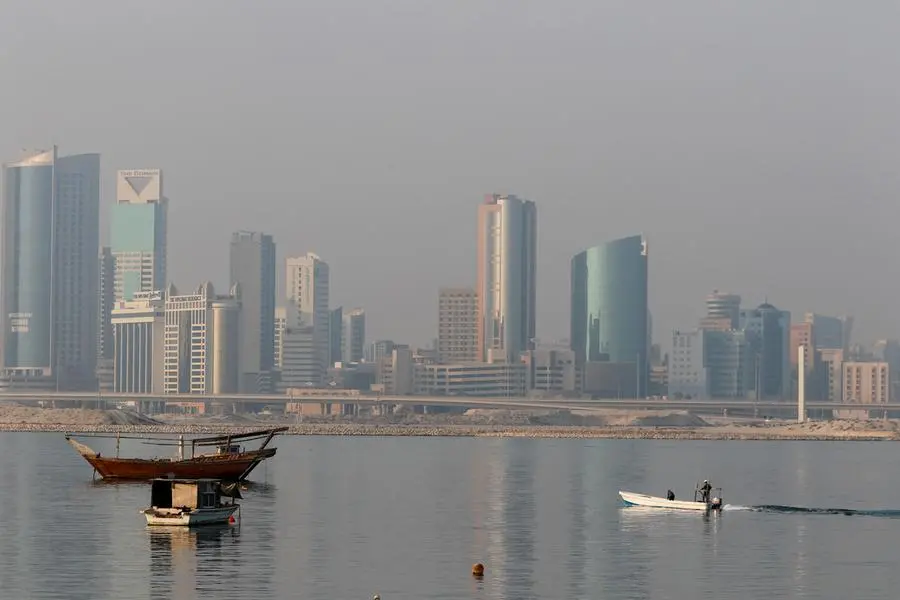PHOTO
Bahrain is well on track to achieve the 2030 Sustainable Development Goals (SDGs) – the global blueprint for peace and prosperity for people and the planet.
This was highlighted by senior officials during a Press briefing yesterday to announce the kingdom’s second voluntary national review (VNR) of SDGs.
SDGs are a set of 17 goals with 169 targets and 248 indicators that include eradicating poverty, hunger and gender discrimination, while guaranteeing affordable and clean energy, climate action and quality education.
All United Nations member-states in 2015 agreed to work towards achieving the goal by 2030.
Bahrain will now launch six consultations with the civil societies and other relevant stakeholders that will be compiled as part of the second VNR that will be submitted at the High-level Political Forum on Sustainable Development (HLPF), to be held in July in New York.
“Bahrain has always given top priority to the SDGs as we continue to work with the Foreign Affairs Ministry, which is our strategic partner,” said Sustainable Development Minister Noor Al Khulaif during the briefing held at Gulf Hotel Bahrain Convention and Spa.
“We submitted the first VNR in 2018 and will present the second report during a high-level forum in New York.
“It will focus on key Covid-19 recovery steps taken by Bahrain and also highlight other key indicators.”
The minister stated they have started a comprehensive exercise to update SDG indicators and give a clear picture on goals Bahrain has already achieved or is on track to reach ahead of the 2030 deadline.
“There has been quite a lot of work done in the last few months, including the commitments made by His Royal Highness Prince Salman bin Hamad Al Khalifa, Crown Prince and Prime Minister (in 2021) at the Climate Change Conference of the Parties (COP26) in terms of reaching a net-zero emissions target by 2060.”
Ms Al Khulaif further spoke about the steps taken to use renewable energy and the afforestation plan that aspires to double the number of trees by 2035, with mangroves increasing fourfold among other initiatives to mitigate global climate challenges and environmental degradation.
Consultations will soon start in Bahrain as stakeholders will focus on different objectives specifically including: SDG 6 (clean water and sanitation), SDG 7 (affordable and clean energy), SDG 9 (industry, innovation and infrastructure), SDG 11 (sustainable cities and communities) and SDG 17 (partnership for the goals).
Co-chairing the meeting yesterday was UN resident co-ordinator Khaled El Mekwad who stressed the technical and consultative support from different UN agencies to local authorities, as part of a strategic partnership in achieving the SDGs.
Meanwhile, Foreign Affairs Ministry’s Political Affairs under-secretary Dr Shaikh Abdulla bin Ahmed Al Khalifa said after meeting the international Millennium Development Goals (MDGs) in 2015, Bahrain embraced the new SDGs.
“We achieved the MDGs before deadline and then when SDGs were adopted by de facto there were a number of basic goals adopted such as free education, healthcare and gender equality among others,” added Dr Shaikh Abdulla.
“We continue to be at the forefront of implementing the SDGs and ensure government plans and legislations are aligned to these global goals.
“Now two years after the pandemic, I believe we remain committed and are on track to implement a number of SDGs with a dedicated ministry to oversee the goals.”
Dr Shaikh Abdulla said challenges still remain in order to achieve more than 200 indicators.
The Arab Region SDG Index 2022 released by the World Government Summit Organisation in partnership with the Mohammed bin Rashid School of Government in Dubai last year stated that six Arab countries managed to achieve 60 per cent of the SDGs.
This included Jordan, Tunisia, the UAE, Algeria, Morocco and Oman. Some of the challenging areas for Bahrain highlighted in the report included SDG 14 (life below water) and SDG 16 (peace, justice and strong institutions), SDG 13 (climate action) and SDG 6 (clean water and sanitation).
Bahrain has recently scaled up its efforts to conserve natural resources, ensuring protected marine areas and setting national goals on energy efficiency and renewable energy.
This includes reducing emissions by 30pc by investing in decarbonisation and energy efficiency initiatives and doubling renewable energy.
Copyright 2022 Al Hilal Publishing and Marketing Group Provided by SyndiGate Media Inc. (Syndigate.info).





















